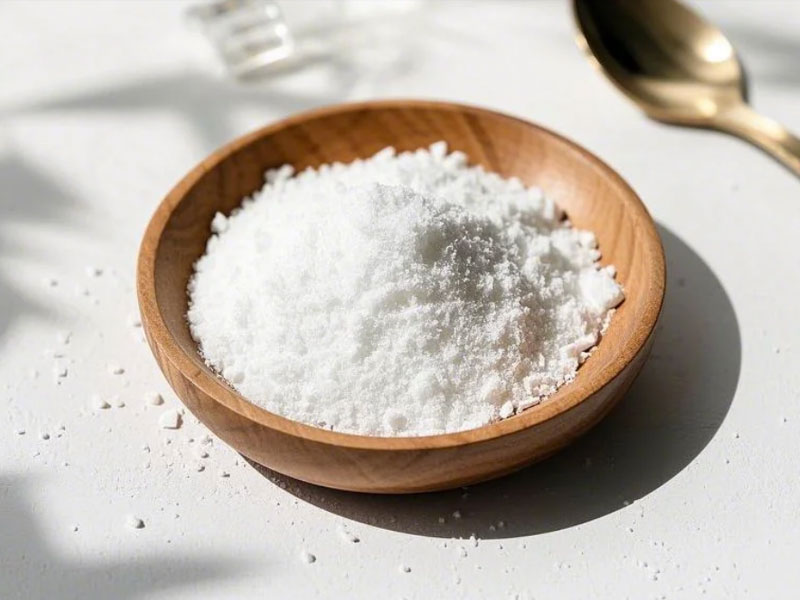As consumer awareness of metabolic health continues to rise, brands across the food, beverage, and nutrition industries are searching for sweetener solutions that deliver clean taste, natural origins, and scientifically proven benefits for blood sugar control. Organic allulose powder and organic allulose syrup have quickly emerged as standout ingredients, offering a rare combination of sweetness, functional performance, and metabolic advantages that traditional sugars cannot match.
This article explains how organic allulose supports healthier glucose management, why manufacturers worldwide are embracing it, and how both powder and syrup formats fit into modern product innovation.
What Makes Allulose Unique?
Allulose is a rare natural sugar that occurs in small quantities in fruits like figs, raisins, and jackfruit. Chemically, it is a monosaccharide similar to fructose, yet the human body metabolizes it differently.
Three characteristics make allulose especially valuable for metabolic wellness:
1. Ultra-low calorie, nearly zero net impact
Although allulose tastes like sugar and provides similar sweetness at about 70% the intensity, the human body absorbs it but does not metabolize it for energy. This results in almost zero usable calories and negligible net carbohydrates.
2. Minimal effect on blood glucose and insulin
Clinical research shows that allulose does not significantly raise blood sugar or insulin levels, making it a safe and practical option for consumers managing glycemic response.
3. Functional performance similar to sucrose
Unlike many zero-calorie sweeteners, allulose behaves like sugar in food applications. It provides browning, bulk, freezing-point depression, improved mouthfeel, and overall formulation stability.
For manufacturers, this means there is no need to compromise texture or taste while reducing sugar content.
How Organic Allulose Supports Better Blood Sugar Management
1. Helps Reduce Post-Meal Glucose Spikes
Compared with sucrose and other traditional carbohydrates, organic allulose is absorbed but not metabolized. Because it bypasses normal glycolytic pathways, it does not convert into blood glucose. This means it can significantly reduce postprandial glucose elevation, supporting individuals concerned about diabetes, prediabetes, and metabolic syndrome.
2. Enhances Insulin Sensitivity
Emerging studies indicate that allulose may support improved insulin sensitivity over time. While research continues, early evidence suggests that regular consumption can positively influence insulin signaling and glucose uptake, contributing to long-term metabolic health.
3. A Low-Glycemic Alternative Suitable for Diverse Diets
Organic allulose powder and syrup are widely used in products designed for:
- Low-GI foods
- Ketogenic and low-carb diets
- Diabetic-friendly formulations
- Weight-management nutrition
- Functional beverages and sports supplements
Because allulose has no measurable glycemic impact, it fits seamlessly into metabolic wellness product lines.
4. Helps Reduce Overall Caloric and Carbohydrate Load
One of the biggest drivers of metabolic imbalance is excess sugar intake. Organic allulose allows brands to maintain sweetness while dramatically lowering sugar content, improving product labels and consumer appeal.
Powder vs. Syrup: How Each Format Supports Clean-Label Innovation
Organic Allulose Powder
Ideal for dry formulations.
Typical applications include:
- Bakery mixes
- Nutritional supplements
- Energy powders
- Table sweeteners
- Chocolate and confectionery
Organic powder is easy to store, blend, and transport, and offers excellent solubility.
Organic Allulose Syrup
Best for liquid or semi-liquid applications.
Widely used in:
- Functional beverages
- Sauces and dressings
- Ice cream and frozen desserts
- Yogurt and dairy alternatives
- Gummies and syrups
The syrup’s smooth texture and natural sweetness make it highly appealing for beverage formulators.
Why Food and Beverage Brands Are Choosing Organic Allulose
The demand for organic ingredients continues to rise, particularly among premium brands targeting clean-label and better-for-you product categories. Organic certification adds value by ensuring:
- Non-GMO origin
- No chemical processing
- Environmentally responsible production
- Compliance with organic food standards
For B2B buyers, organic allulose supports product differentiation and opens opportunities in natural, organic, and specialty retail channels.
A Smart Choice for Blood Sugar–Conscious Consumers
Organic allulose powder and organic allulose syrup provide a rare combination of sweetness, natural origin, clean-label compliance, and metabolic advantages. As consumers increasingly prioritize blood sugar balance and overall wellness, allulose has become one of the most strategic ingredients for brands creating healthier, reduced-sugar food and beverage products.
Whether used in bakery items, beverages, snacks, confectioneries, or nutritional supplements, organic allulose is an ideal choice for manufacturers seeking to support better glucose control while maintaining excellent taste and functionality.
Recommended Product
Organic Allulose Sweetener
Zero-Calorie, Natural Sweetener for Clean-Label Food, Beverage & Keto Formulations

